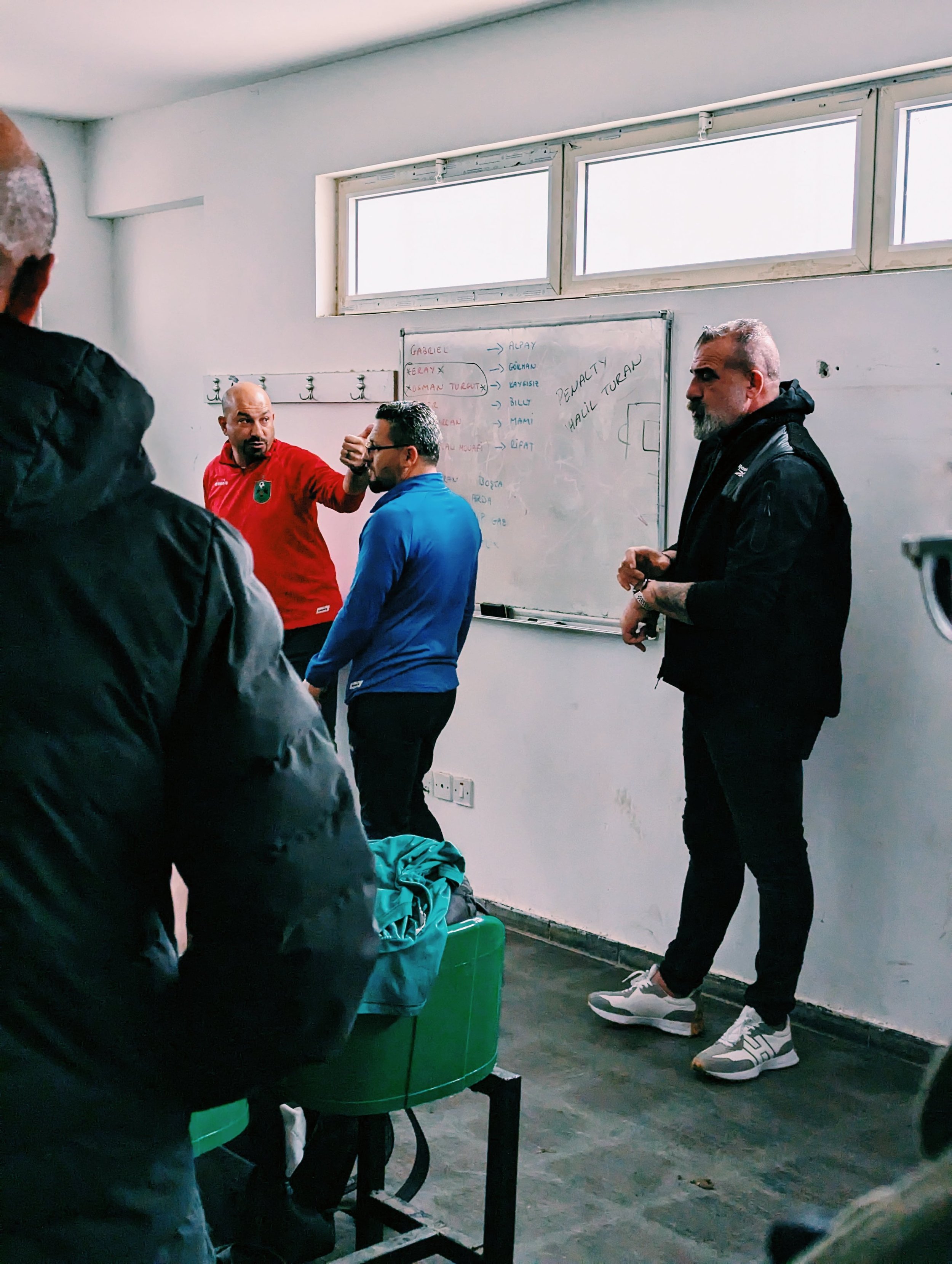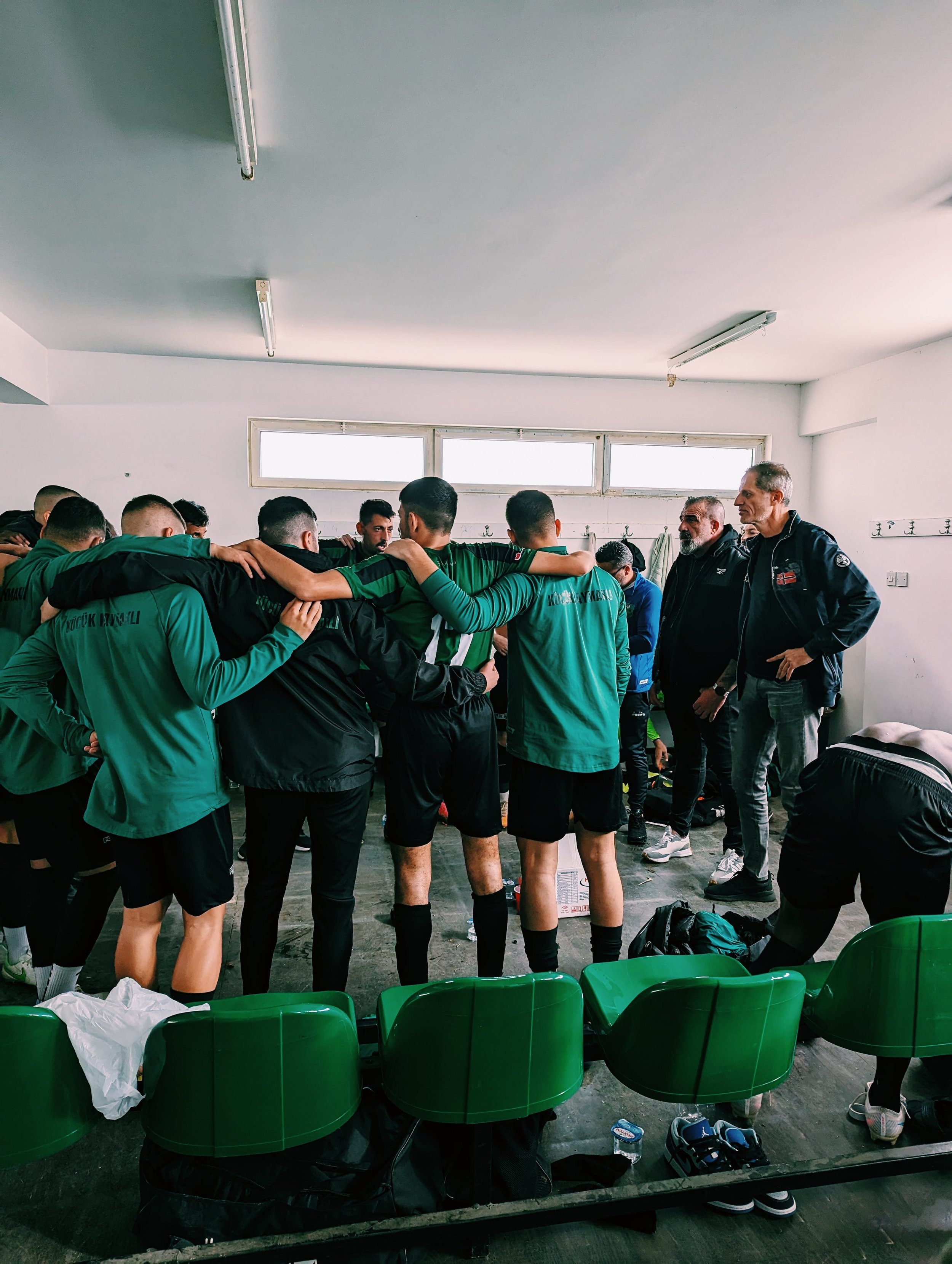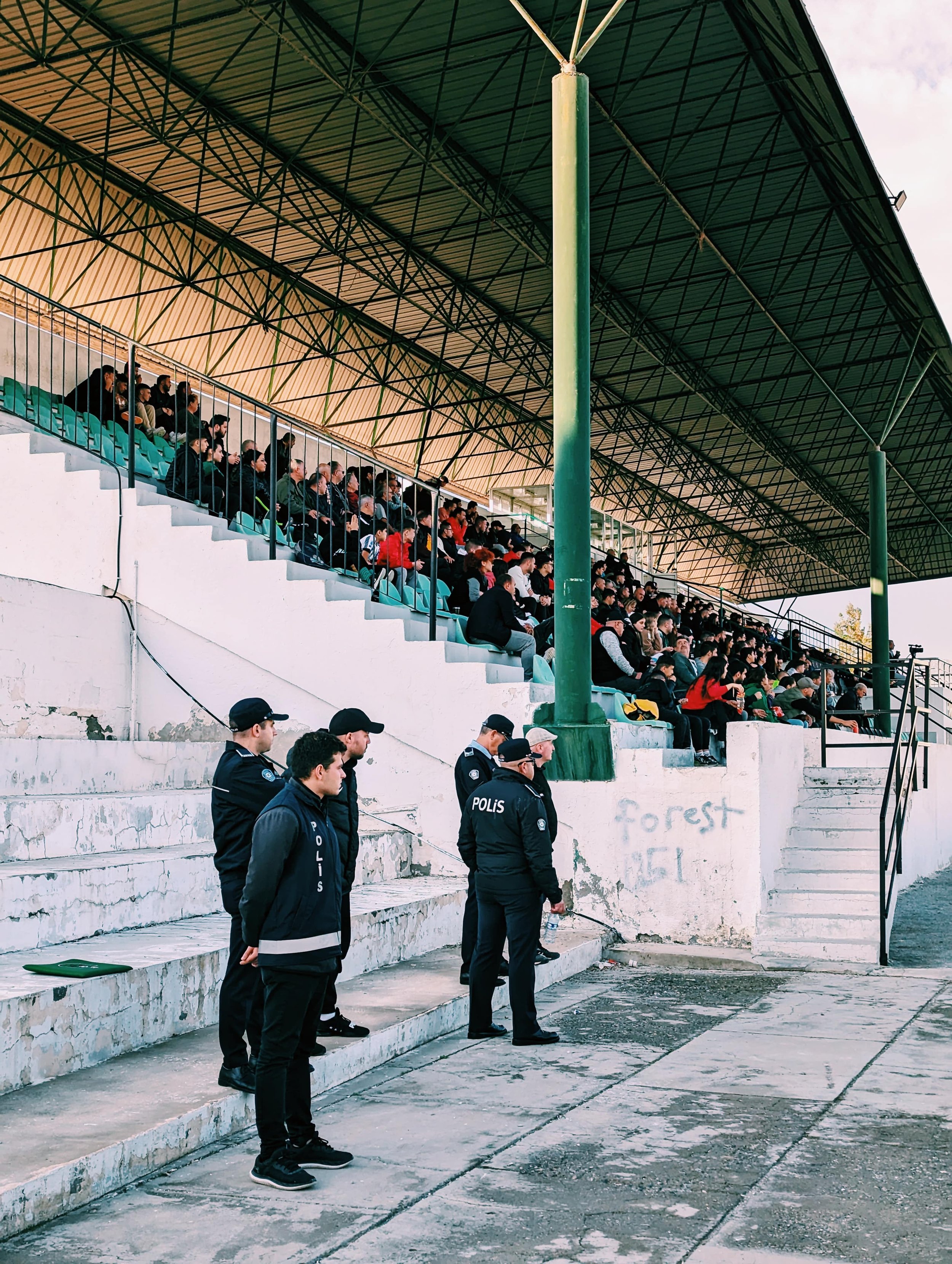Unrecognised - Football in Northern Cyprus
As you approach Nicosia from Southern Cyprus, you cannot help but see a giant Turkish flag carved into the hill. Strictly speaking, the 426 metre wide emblem is pretty much the inverse of the Turkey flag, white with a red crescent moon and stars, specific to the Turkish Republic. It’s visible in most of the south (and space!), not to take away from the severity of the situation, but it’s undoubtedly a fine example of shithousery. On that note, it’s important to specify this article will not explore the intricacies of geopolitics, it’s purely football.
It’s a normal Sunday afternoon scene, and it could be any street in the world. Music is playing, friends are whiling away time over a coffee, and then, a border. This is the only divided capital in the world. Since 1974, the city has been divided officially with a UN exclusion zone. To pass, you go through two passport checks, as you leave the Cypriot side, and then enter the Turkish side. It may seem like a curiosity, almost a tourist attraction to some, but this is everyday people's lives, separated. Once through, it immediately feels different, the coffee is better for one thing. Turkish Lira acquired, a taxi driver shouts ‘football’ with a big smile, and that is the limit of our conversation. Universal language.
The wonderful Şehit Hüseyin Ruso Stadium is the destination, home of Küçük Kaymaklı Türk S.K. with apartment blocks overlooking the pitch, and star players signing autographs for children who have just met their heroes. It’s still some time ahead of kick off, but as Tugberk Kaya, the General Secretary explains, “Like the other teams worldwide, we live every moment of the games. Whenever the team is winning, we are all happy. We cannot enjoy the rest of the day and the week, if we lose. Even though the lack of recognition affects the clubs' attendance and support, the teams have significant support. We visit the club first at 9:00 am, where the fans praise the players before the game. The fans start to attend the stadium to watch the game of the youngster's team.”
The name of the stadium is poignant, as Tugberk describes “We had our first championship in the 1962-1963 season. Unfortunately, Hüseyin Ruso, who was our coach and player, was killed on 25 December 1963. Five thousand one hundred and sixty-four people were relocated from the region due to conflicts, and 67 people died in Kaymaklı. Hüseyin Ruso was supposed to go to Italy for surgery on 28 December 1963. The conflict had started, and he was killed; the league was not completed that year and was not played in the upcoming four years”.
This deep rooted, strong link to the past is prevalent around the stadium and after an impassioned tactical talk from the imposing head coach, both detailed and meticulous, the board of directors say a few words. In particular, the last title winning president rouses the players. Various executives discuss matters between themselves, bringing to mind a Turkish language version of The Sopranos, as they take their seats in the crowd and drown in sunflower seeds.
It’s an odd concept, being unrecognised. Both FIFA and UEFA, those bastions of morality, do not acknowledge the KTFF Super Lig, and this is something Tugberk feels passionately about.
“Football is a universal game. Putting the Cyprus Conflict aside, the unrecognition of our football federation with UEFA and FIFA is unacceptable. Sports must not have embargoes, and bans are not accepted. Football should allow unification by playing. In 2013, The Cyprus Football Association (KOP/CFA) and Cyprus Turkish Football Association (CTFA) had signed a provisional arrangement for football in Cyprus, which aims to unify and facilitate the game's progress on the Mediterranean island after more than five decades of separation. Unfortunately, the attempts could not progress. I emphasise the urgent need to remove the bans and embargoes on sports, which mainly affect the youth of my country. As the league's market value is less due to embargoes, our licensed football players also have other occupations, which may decrease their potential and performance”.
Football and politics are intrinsically linked, but when the whistle blows, everything is put aside and Küçük Kaymaklı kick off playing 4-3-3 in an end-to-end game, with the big number 10 the focal point up front. At half time, they are 1-0 down, quite unfairly.
In the second half, Pera L. Gençler Birliği SK extend their lead as the home sides number 10, who is 37 years old, drops back into defence, which is either total football or a lack of stamina, in the twilight of his career. A great goal from range for the home side ignites hope of a comeback which wasn’t to be. The support chastises every decision from the referee with performative outrage and chain smoking, and clear passion. No points today, but what does the future hold with Tugberk on the board?
“My first aim is to enable the digitalization of the club and to record all the communication and processes to improve the professionalisation of the club. The team only got 1 point in 6 games before our appointment. Within our term, we have 7 points in 4 games. So we are moving up. Securing financial stability is one of the key aims. Improving the current squad by using up-to-date concepts and technology is also important. Some of my notes on my agenda are preventing relegation, completing the league in a better position, and developing the squad for the next season. Usually, businesspeople become the president of the club. If we can achieve professionalism in the coming years, I would like to manage the club and gain a championship, which we miss as fans”.
This team, this league, has fight and heart. This is football for the love of the game, the antidote to UEFA and corruption. Maybe one day they will be recognised by the governing bodies, maybe not. But, the football here is not less than, just because it is unrecognised.








